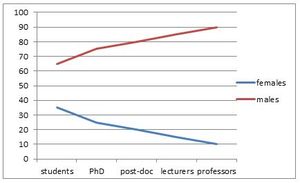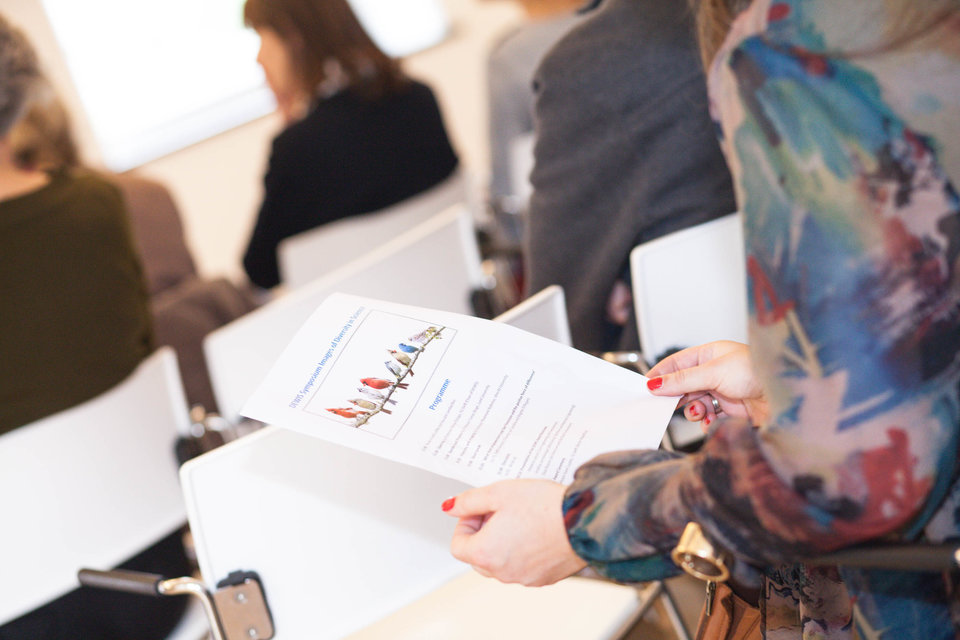’What does Gender have to do with Physics?’
Tomas Brage, Professor and Director of Education in Physics at Lund University in Sweden, talked about the segregation of women in academia and how we can acknowledge and face this problem.
Brage: "Physics is considered to be objective but the culture of Physics is affected by sex and gender (Class-rooms, labs, history, etc. are almost always dominated by men). This seems like a contradiction and is called the positivistic paradox in Physics. When we look at the numbers we see the proof of segregation: less women in the field of Physics. The percentage of women are also declining along the career ladder. Below you can see the well-known scissors diagram."

Vertical segregation in Physics
"This vertical segregation proofs a culture problem. Where did all the talented women go? Males have three times more change of becoming a professor. This is an academic problem, not a women’s problem. We lose talented people. We need to look at the culture in our institutions. The bias against women, due to the fact that Physics is stereotypically male, combined with the “myth of meritocracy” could be one key to understand the lack of women in the field. We also often hear that there are no women to recruit. A counter-action is to set a cascading goal: at least the same percentage of women as for one step ”below”. And we need to focus on both men and women and offer them gender-integrated leadership and coaching programs."
Tomas Brage also mentions that discrimination and harassment is common and an essential problem to deal with. We need to introduce anti-discrimination measures, through courses or workshops and find out why people leave."
'Double sided coin of representation'
The next speaker, Rosemarie Buikema, Professor of Art, Culture and Diversity at Utrecht University, talked about the way in which legislation and culture have to interact in the creation of inclusive institutions.
Buikema analysed the double sided coin of representation as a concept that both deals with the actual and symbolical presence of women. Inclusion is about representation but also about communication. What does it mean to have women in the room? Are we able to listen to them? The results of a peace process meeting for instance will be less sustainable when no women attend. Why? Women define the problem differently. The interventions will be different as well. This is also crucial on how to deal with the challenge of becoming an inclusive university.
Buikema: “Inclusion can only be attained if those who are in power are prepared to share the power of definition. We first need to think about what it means to be an inclusive university and we need to negotiate about this, both men and women."
Rosemarie talks about images of change. We need to think about how we are embodying difference and then we can imagine how change can occur. Cultural change takes time. Do what is expected but play.

'A toolbox for change'
The TU Feminists explained the problem of inequality and the need for intersectionality as part of the solution. This refers to the interconnecting and often overlapping systems of oppression. We need to find ways of working together. TU Delft Feminists is a platform and has more than 700 members. They organize discussion meetings, actions, and performances. They have support groups and a book club. If you want to join look on their Facebook page.

Mladena Lukovic has won the yearly DEWIS-award for very talented female PhDs. With this award, DEWIS rewards the quality of the PhDs dissertation and places her extraordinary achievement in the spotlights. Read an interview with the award winner here.


